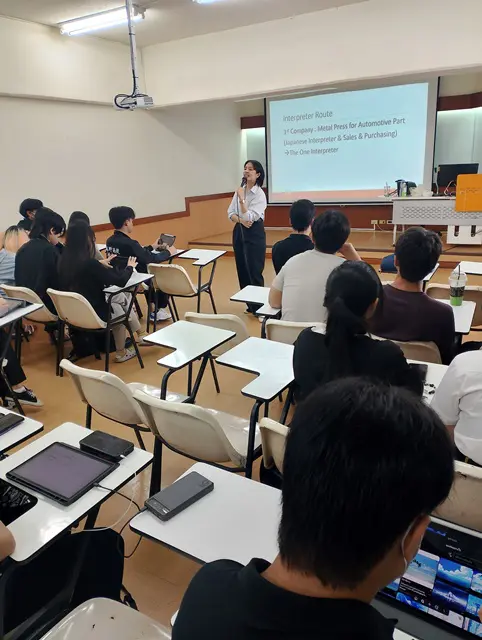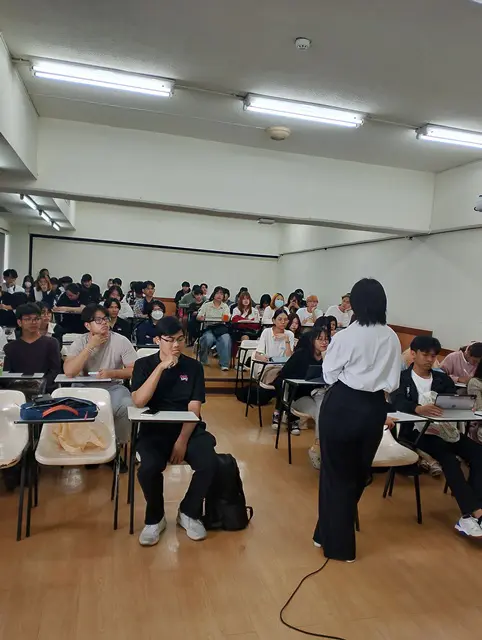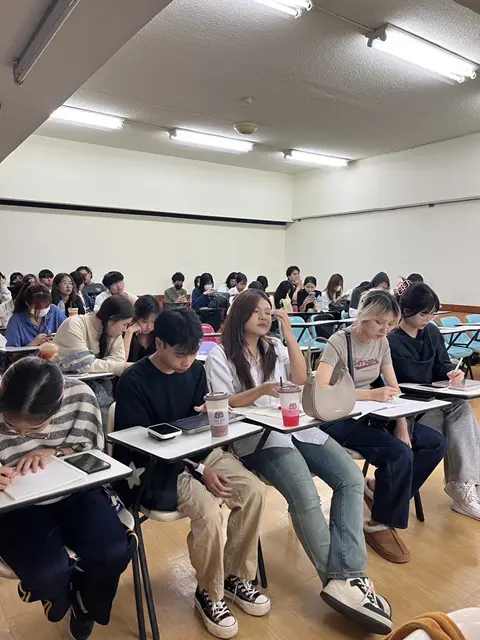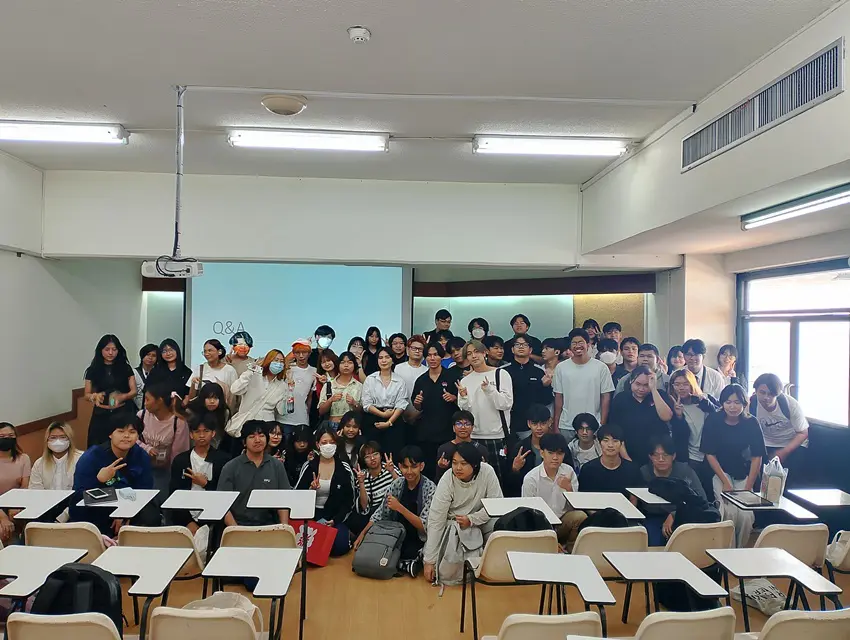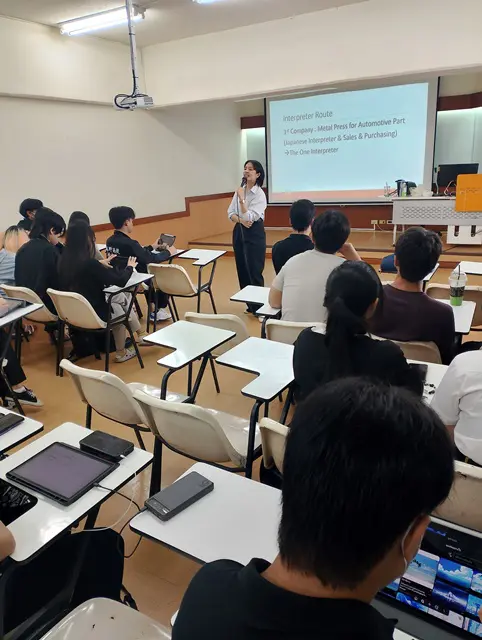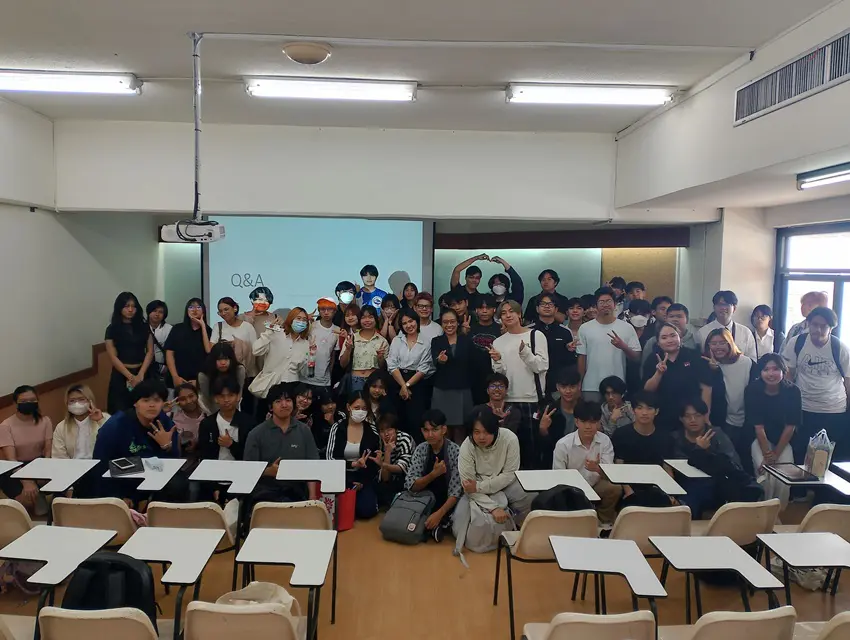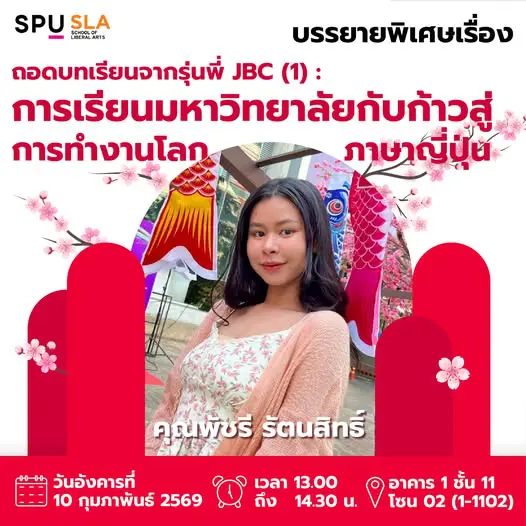This project was designed to prepare students interested in pursuing a career as a Japanese interpreter, specifically within industrial settings.
We were honored to welcome Ms. Jirattika Malilaphan, a professional interpreter with over 9 years of experience across various Japanese industries, who shared her in-depth insights and real-life experiences in a warm and approachable manner.
🔍 Highlighted Training Topics Included:
- Career paths and growth opportunities for interpreters
- Types and roles of interpreters in organizations
- Professional ethics and conduct
- Essential soft skills for interpreters, such as analytical thinking, communication, and emotional regulation
- Japanese workplace etiquette
- Job application techniques, including résumé writing and interview strategies
- The role of interpreters in the age of AI and handling unexpected workplace scenarios
The training was held on Thursday, March 27, 2025, at Building 1, Room 1-806, Sripatum University, under the supervision of Ajarn Rachada Prommaput, Lecturer in Japanese for Business Communication.
This project aligns strongly with SDG 4 (Quality Education) and also supports SDG 8 (Decent Work and Economic Growth) and SDG 17 (Partnerships for the Goals) by equipping students with essential workplace skills, fostering industry collaboration, and preparing youth for quality employment in global contexts.
โครงการ: อบรมทักษะการทำงานแบบองค์กรญี่ปุ่น
เตรียมความพร้อมนิสิตสู่สายงานล่ามในภาคอุตสาหกรรม เพื่อเตรียมความพร้อมให้นักศึกษาที่สนใจอาชีพล่ามภาษาญี่ปุ่น
ได้รับเกียรติจากวิทยากรภายนอก คุณจิรัฏฐิกา มะลิลาพันธุ์ ล่ามมืออาชีพผู้มีประสบการณ์มากกว่า 9 ปี ในหลากหลายอุตสาหกรรมญี่ปุ่น มาร่วมถ่ายทอดประสบการณ์จริงอย่างลึกซึ้งและเป็นกันเอง
หัวข้อการอบรมที่โดดเด่น ได้แก่
- เส้นทางอาชีพล่ามและการเติบโตในสายงาน
- ประเภทและบทบาทของล่ามในองค์กร
- จรรยาบรรณและการวางตัวอย่างมืออาชีพ
- ทักษะเสริมที่ล่ามควรมี เช่น การคิดวิเคราะห์ การสื่อสาร และการควบคุมอารมณ์
- มารยาทการทำงานกับคนญี่ปุ่น
- เทคนิคการสมัครงานสายล่าม รวมถึงการเขียนเรซูเม่และการสัมภาษณ์
- บทบาทของล่ามในยุค AI และการรับมือกับสถานการณ์ไม่คาดคิดในองค์กร
เมื่อวันพฤหัสบดีที่ 27 มีนาคม 2568 ณ อาคาร 1 ห้อง 1-806
ดูแลโดย อาจารย์รชาดา พรหมบุตร อาจารย์ประจำสาขาวิชาภาษาญี่ปุ่นเพื่อการสื่อสารธุรกิจ
มีความสอดคล้องหลักกับ SDG 4 (Quality Education) และยัง สนับสนุนเป้าหมาย SDG 8 และ 17 ผ่านการสร้างทักษะการทำงาน การมีส่วนร่วมของภาคี และการเตรียมความพร้อมเยาวชนเข้าสู่แรงงานอย่างมีคุณภาพ ถือเป็นโครงการที่ตอบโจทย์ THE Impact Rankings ได้อย่างชัดเจน โดยเฉพาะในด้านการพัฒนาทักษะชีวิตและวิชาชีพในบริบทสากล
